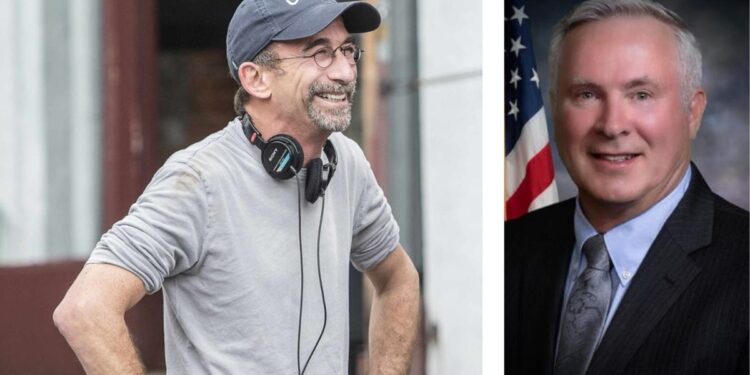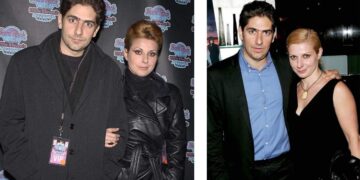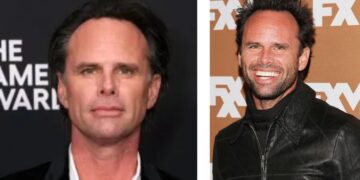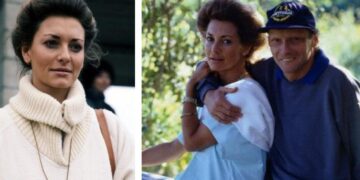In the vast and complex world of medicine, some figures are known worldwide for their groundbreaking research or global influence. But many others—who worked quietly, with incredible skill and dedication in their local communities—never make it into textbooks or medical journals. One such figure is Doc Hayman. Though not a household name, his story is one of perseverance, compassion, and an unwavering commitment to healing. The untold story of Doc Hayman is more than a look at one man’s life—it’s a window into the soul of rural medicine and the quiet power of care that changes lives without ever making headlines.
Quick Bio
| Personal Details | Information |
| Full Name | Doc James Hayman |
| Also Known As | Doc Hayman |
| Date of Birth | 1992 |
| Age | 30 |
| Place of Birth | Los Angeles, California |
| Nationality | American |
| Ethnicity | Caucasian |
| Hair Color | Brown |
| Eye Color | Dark Brown |
| Profession | Sound Designer / Music Producer / DJ |
| Current Residence | New Orleans, USA |
| Marital Status | Married |
| Children | Cassius James Hayman |
| Father | James Hayman |
| Mother | Annie Potts |
| Siblings | Harry Hayman, Clay Senechal |
Early Life: Roots of a Healer
Very little is known about Doc Hayman’s early life, but what we do know paints the picture of a deeply curious and driven individual. Born into a working-class family during a time when access to education and healthcare was limited, Hayman showed an early fascination with science and biology. Despite financial struggles, he pursued knowledge wherever he could find it—often reading borrowed books by candlelight and working odd jobs to support his schooling.
Unlike many who saw medicine as a means to prestige, Hayman was drawn to the field by a sincere desire to help others. It was this guiding principle that shaped every step of his career. From early on, he seemed to believe that healing was not just a science but also a moral obligation. The seeds of his future impact were sown in these formative years—years marked by hard work, discipline, and a growing empathy for those in pain.
A Rural Doctor with an Urban Mindset
When Doc Hayman eventually earned his medical degree, he faced a choice: stay in the city where the pay and professional opportunities were plentiful, or return to the rural towns where healthcare was virtually inaccessible. Hayman chose the latter. He believed that the people in small towns deserved the same quality of care as those in urban centers. With little more than a bag of medical tools and a heart full of purpose, he set out to serve communities often forgotten by the modern healthcare system.
Hayman didn’t just provide basic medical care—he brought with him the latest techniques and treatment methodologies. He was known to spend nights reading international medical journals and attending conferences, often traveling long distances at his own expense. His approach was a fusion of old-school dedication and cutting-edge knowledge, making him a rare and invaluable asset to the people he served.
Treating the Patient, Not Just the Disease
One of Doc Hayman’s most notable qualities was his holistic approach to care. At a time when medicine was becoming increasingly specialized and impersonal, Hayman made it a point to understand the full context of his patients’ lives. He asked about their work, family, diet, and mental health—long before “integrated care” became a buzzword in modern healthcare systems.
He knew that a child’s recurring cough could be linked to poor housing conditions, or that a farmer’s back pain might be compounded by depression over financial hardship. For Doc Hayman, medicine was never about treating symptoms in isolation. It was about healing the whole person, body and soul. Patients often left his care not only with physical relief but with a renewed sense of dignity and hope.
Innovation Through Necessity
Operating in a resource-limited setting forced Hayman to become incredibly inventive. He built makeshift medical tools, repurposed common household items for clinical use, and even trained local volunteers in basic nursing tasks. His clinic might not have had the latest machines, but it was a hub of ingenuity and efficient care.
When pharmaceutical supplies ran low—as they often did in remote areas—Hayman would compound his own medications or adapt natural remedies supported by medical literature. His deep understanding of pharmacology and pathology enabled him to do more with less, and he documented his techniques meticulously so others could benefit.
Many of these methods later found their way into broader public health practices, especially during times of national medical shortages. Though he never sought fame, Hayman’s work quietly influenced rural medical protocols across several states.
Mentorship and Medical Ethics
Doc Hayman was more than a physician—he was a mentor to dozens of young doctors, nurses, and medical students who passed through his practice. His emphasis on ethical care left a lasting impression. He taught his mentees that “the stethoscope must always follow the heartbeat of compassion,” a phrase that became almost legendary in his circles.
He discouraged shortcuts, frowned on over-prescription, and believed strongly in informed consent—well before it became a legal requirement. Many of his students went on to lead prominent medical careers, often citing Hayman’s influence as their moral and professional compass. In this way, his legacy extended far beyond his immediate community.
Personal Sacrifices and Community Impact
Despite his invaluable service, Doc Hayman lived modestly. He often waived fees for families who couldn’t pay and made house calls without charging for transportation. This generosity came at a personal cost. He lived in a small, aging house and drove the same vehicle for over 20 years. He never married, dedicating his life entirely to medicine and his community.
But his sacrifices were not in vain. Under his care, child mortality rates dropped, infectious disease outbreaks were quickly contained, and overall community health improved dramatically. Schools began to perform better as children missed fewer days due to illness, and local economies stabilized because of a healthier, more productive workforce. Though he didn’t wear a cape, to his community, Doc Hayman was nothing short of a superhero.
Challenges and Criticism
No pioneering figure escapes criticism, and Doc Hayman was no exception. Some criticized him for being “too traditional,” especially as technology began to take over the healthcare landscape. Others questioned the sustainability of his hands-on model in an increasingly digital world. But Hayman remained undeterred. He welcomed innovation but refused to let it replace the human connection that he believed was the essence of healing.
He often said, “A robot can prescribe, but only a human can care.” In today’s era of telemedicine and AI diagnostics, his words feel more prophetic than ever.
Later Years and Final Contributions
In his final years, Doc Hayman began writing a series of essays and memoirs—part medical reflections, part philosophical treatises on the meaning of care. Though these writings were never widely published, they’ve become valuable reading for students in regional medical programs.
Even in retirement, he continued offering free consultations from his home and mentoring young doctors via handwritten letters and phone calls. He passed away quietly in his sleep at the age of 87, surrounded by former patients, friends, and mentees. His funeral drew hundreds, including regional officials, healthcare professionals, and everyday people whose lives he had touched.
The Quiet Legacy of Doc Hayman
Today, Doc Hayman’s story lives on in the countless lives he improved, the professionals he trained, and the values he embodied. His life is a reminder that greatness in medicine is not defined solely by academic accolades or media coverage, but by the lives we touch and the compassion we show. His model of care—rooted in humility, skill, and genuine concern—offers a powerful blueprint for the future of healthcare.
As the medical world increasingly looks toward high-tech solutions and scalable models, it would do well to remember Doc Hayman: a man who practiced the kind of medicine that machines may never be able to replicate—medicine of the heart.
Frequently Asked Questions (FAQs)
1. Who was Doc Hayman?
- Doc Hayman was a rural physician known for his compassionate, community-focused approach to healthcare. Though not widely recognized in mainstream medical circles, he made significant contributions to rural medicine through innovative care and deep patient relationships.
2. Why is Doc Hayman considered a pioneer in rural medicine?
- He brought modern medical practices to underserved communities, used creative methods to overcome resource shortages, and mentored many future healthcare professionals with a strong ethical foundation.
3. Did Doc Hayman receive any awards or recognition?
- While he was not nationally famous, Doc Hayman received several regional awards for service and was honored posthumously by various healthcare organizations and local governments.
4. What is Doc Hayman’s legacy today?
- His influence lives on through his former students, the improved health outcomes in his community, and his writings, which continue to inspire a more humane approach to medicine.
5. How can I learn more about Doc Hayman?
- Some of his personal writings are held in regional medical archives, and several local documentaries and interviews with his former patients and colleagues are available online.


















